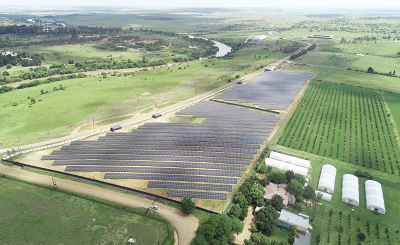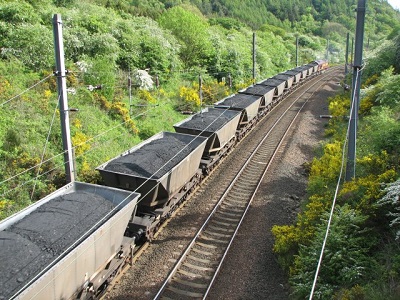

Founder: Turnaround Talk
When Cyril Ramaphosa ran against Dr Nkosazana Dlamini-Zuma for the Presidency of the ANC (in 2017), many expected it to be a tight race with no guaranteed winner in the lead-up to the conference in Gauteng. Back then, there was a storm brewing at Eskom.
Ramaphosa won the race, but his victory came at a cost. It became clear that the party was divided into two camps and that any reforms that Ramaphosa wanted to implement would have to have the backing of a faction that would make life difficult for him. This became evident as many of Ramaphosa’s plans effectively fell flat at the first hurdle within Luthuli House.
Since then, South Africa’s economic woes have deepened. Not only was the country severely impacted by the Covid-19 Pandemic, but we are now faced with an energy and logistics crisis that requires strong leadership and innovative thinking to come up with a solution to address these challenges. and there are no signs that Eskom is ready to address its challenges.
Ramaphosa is adamant that the factionalism within the party has been addressed. But has it? His rhetoric is all about economic reform, yet Governments’ actions are anything but complementary. A small town in the Free State is exposing this.
A deeply rooted dispute with Eskom
The Moneyweb article points out that Rural Maintenance is managing Mafube’s electricity distribution function in terms of a 25-year contract, which still has 14 years to go. Mafube includes the towns of Frankfort, Villiers, Tweeling and Cornelia in the Free State.
The dispute centres on Rural Maintenance’s use of excess energy generated by four solar farms in the area to spare Frankfort residents from load shedding when the supply from solar exceeds the amount that must be shed.
The article adds that the outcome of the dispute is considered key to the road forward for many communities in the process of developing similar projects.
Eskom argues that alternative energy that is being used as part of users’ normal load profile is already included in the baseline from which the reduction during load shedding must be achieved.
It therefore expects the alternative generation capacity to stand idle and only be deployed during load shedding.
The article points out that the utility expressed its concern in court papers that if Rural Maintenance is permitted to continue with its practice, which it calls “voiding”, a large number of its customers will want to do the same “and Eskom’s ability to effectively manage the grid will therefore be severely compromised”.
Eskom is discouraging investment
The Moneyweb article points out that Tommy Garner, Chair of the South African Independent Power Producers Association (Saippa), says hundreds of projects countrywide are aimed at doing exactly what Rural Maintenance is trying to achieve.
The article points out that such projects must sell energy to be financially viable and that will be impossible if used only during load shedding.
A court application by Rural Maintenance to retain control over the way load shedding is implemented in Mafube was dismissed due to the failure of the municipality to file an affidavit confirming its support for the company.

Image By: Gallo Images/Rapport/Elizabeth Sejake
The article adds that, as an agent of the municipality, Rural Maintenance does not have the legal standing to litigate if it is unable to demonstrate support from the municipality, which is the entity licensed to distribute electricity in the area.
Rural Maintenance CEO Chris Bosch says the same may happen when the dispute is served before Nersa.
“If Eskom once again points to the position of the municipality, and I’m sure it will, we won’t be able to proceed with the dispute.”
Is Eskom serious about reducing the dependency on the national electrical grid?
‘Hands tied’
The Moneyweb article points out that Mafube acting Municipal Manager, Advocate Mothusi Lepheane, says his hands are tied.
The struggling municipality is under administration and the administrator has referred the contract between the municipality and Mafube to National Treasury for review.
“Municipalities are not allowed to have such [long] contracts without it being reviewed every three years,” says Lepheane.
The article adds that that has never been done in this case, but Lepheane was unable to explain why not.
“I only joined [the municipality] in November,” adds Lepheane.
Until the review has been finalised, says Lepheane, he cannot enter into any matter pertaining to the contract on behalf of the municipality.
“National Treasury wants municipalities to improve their revenue collection. Rural Maintenance has done exactly that. It will be irrational to end the contract with them.”
The truth of this matter is…if Government is truly invested in reforms that will address economic growth, surely it would give Mafube and Rural Maintenance a bit of leeway to see how they can manage this over the long term. It may be a business case that Government can roll out in other municipalities. However, Government is so obsessed about holding onto their last bit of control that they will sacrifice a genuine chance to reform the economy. And Eskom is the proverbial vark in die verhaal (as the Afrikaaners put it).
Rail problems
The other major driver of South Africa’s economic growth has always been our rail network. Ramaphosa is now asking Transnet to approach it with a growth plan after various coal miners have revised their sales down because of structural challenges on the Transnet line.
According to an article by the Daily Investor, Ramaphosa indicated that Transnet must be open to allowing private rail network operators to access the line. The article added that Transnet rejected an offer from Anglo American Plc to take over the running of its ore line, which is one of its most profitable routes, but battles to move sufficient volumes.

Image By: Callum Black
Mixed messages
It seems as if we are getting mixed messages from Government, and this can only be an indication that:
- either the factionalism within the ANC has not been resolved despite assurances that it has; or
- Government says one thing in public but does something completely different when it actually comes down to implementing reform.
South Africa is desperate for economic reform. This involves not only addressing the Energy Crisis, but to address the Unemployment Crisis.
It seems as if Ramaphosa does have a plan, but implementation is where Government is severely lacking. South Africa is in need of change management, but we need strong leadership to be blunt about the country’s inefficiencies and how we address them. Will we ever receive the change that we so desperately deserve?




